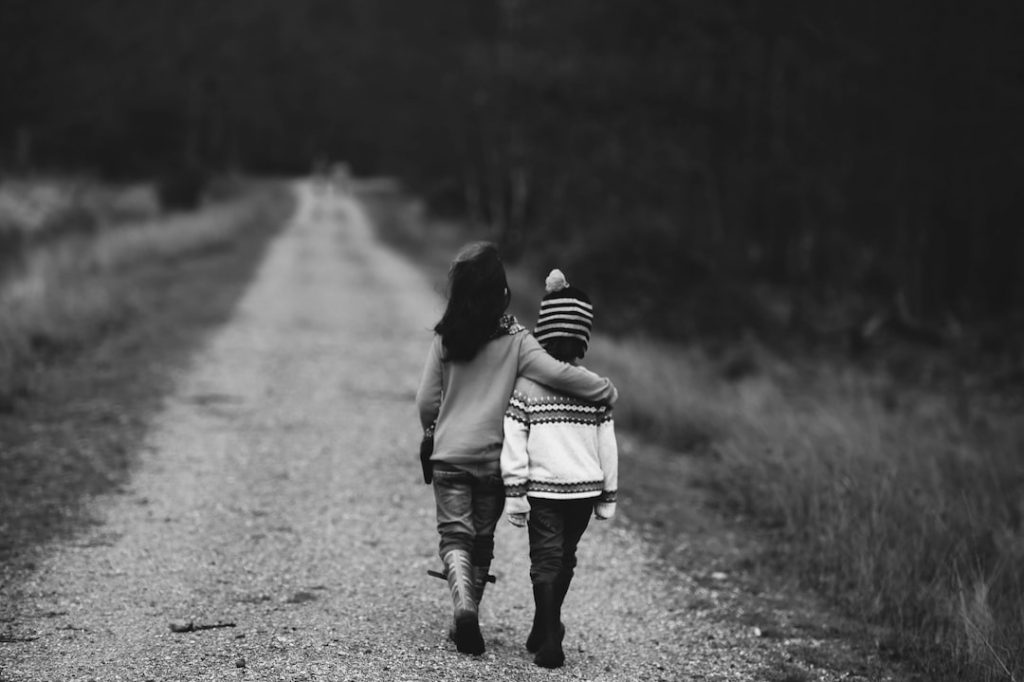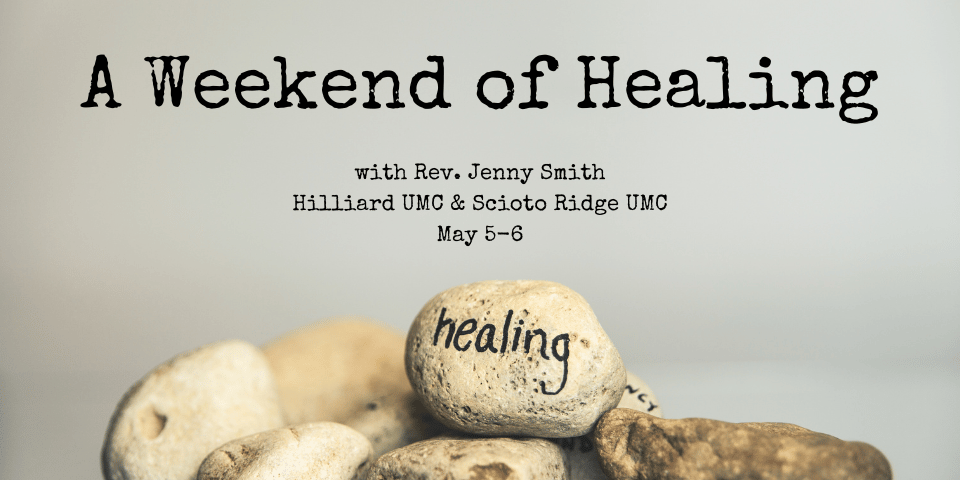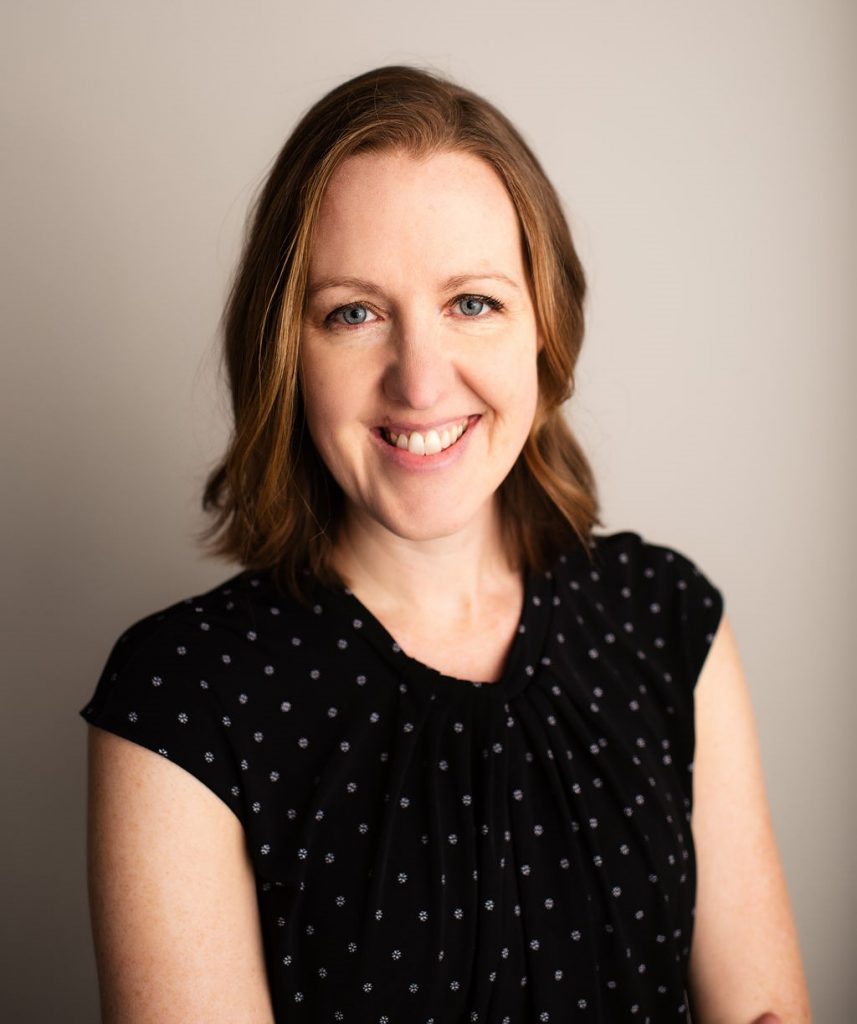
April 19, 2023
A Note from Pastor Jenny Smith
Dear Friends,
Anyone else feel like they lost the last three years of their life?
I intellectually know March 2020-March 2023 happened. My body knows it too. There’s plenty of leftover trauma vibes running around my nervous system to prove it. My Google calendar is full of evidence I lived these last three years. Somehow my children grew taller. My Amazon Photos account even says I have 23,188 photos and videos during those three years. Yeah.
So why is there another part of me that can’t quite shake the feeling it never happened?
Therapists and mental health professionals likely have a number of responses about disassociation, the time warp of a global crisis, isolation, the fear we held in our bodies and many logical reasons that the last three years were wild for our mental health.
Today I offer one specific lens for our reflection, and you’ll recognize this one around here: Grief.
In the early months of the pandemic, I started watching our collective inability to grieve this catastrophe. Much grace because we all shifted into survival mode. We had to. In a matter of weeks, the world shut down and we were banished to our rooms for a time out. Some of us loved the extra time at home. Others did not.
The last three years really messed with us.
The simple truth for so many: The last three years really messed with us. Our sense of community, isolation, and identity shifted. We learned to hold large levels of stress in our bodies while pushing through out of capitalistic necessity. Many faced significant challenges in relationships that felt unsurvivable. People asked new questions and quit their jobs. Others holed up in their homes and disappeared into their own world. Beloveds passed away without the power of comforting rituals.
As we emerge into 2023, it feels like we’re shaking the dust off and squinting our eyes as we step out from our caves. The caves that tucked us away from the big scary things in the world. The caves that felt like safe cocoons but now feel like locked dungeons.

As I went from stop to stop on our book tour for Still Here: A Poetry Memoir of Grief and Love, I felt one consistent thing: We’re holding deep grief. And it’s not just from losing loved ones. It’s the pandemic too. It came through in your stories and teary eyes. I saw it in the hunch of your shoulders and the deep sigh in your lungs. I heard it in your questions. We’re blinking our hearts open again, and we’re shell-shocked at what’s in front of us.
Where do we go from here?
How do we bring closure to things we don’t understand?
Do we just move on?
The forever problem with our society’s obsession with “moving on” is that it’s a denial of the pain in our bodies. We think we’re behind and everyone else looks “fine” so we must catch up. Anxiety enters the chat and we expertly tuck grief and trauma into the corners of our bodies, crossing our fingers that out of sight, out of mind is a real thing.
It’s not.
Our bodies remember.
I was in the middle of an intense season of grief work when I got the call my brother was in ICU and likely not going to make it. A couple days later I talked to my therapist about the multiple traumas in front of me. How could I continue the work I was doing now that the unthinkable fell into my lap? She responded, “You can set aside the previous work you were doing. It’s not going anywhere. It will be there in five weeks or five years or five decades. Your body remembers and holds it.”
I remember thinking how unfair this was. This new trauma should cancel the old one.
But she was right. I’ve been able to return to the previous situation to process the pain in my body and the learnings from that season. Underneath the pain of losing a loved one, the specific trauma responses from the earlier situation were hanging out. When I called them forth, they ran to the surface, ready for my full attention.
The good and annoying news of all this — our bodies remember what happened to us during the pandemic. We can’t just move on and act like it’s in the past. It lives in us until we’re ready to look at it.
I imagine we’ll be processing this as a global community for years and decades to come. There’s not a ten step process we can all engage now to magically heal from a global crisis. But being aware of the grief living in our body may be enough right now. This may be the gift. That we deeply acknowledge these last three years really messed with us. That we keep that in mind as we work together and offer each other compassion. That every single one of us has changed. We are not the people we were in January of 2020.
May we make room to grieve those realities in our bodies when they rise.
May we feel our anger and disappointment.
May we work with our bodies as our nervous systems heal.
May we love ourselves and each other back to life.
I leave you with the last poem in Still Here.

the best thing
someone told me
you never have
to get over this
What if we never get over the chaos and absurdity that was this season of pandemic? Sounds odd, but hang with me. It doesn’t mean we remain stuck in anger, fear, and loss.
Instead, what if we forever acknowledge this global crisis is now a part of our DNA? Instead of denying it, we accept it’s deeply a part of us. It affects how we communicate and understand each other. It affects the development of our children. It changes how we think about our systems of care. It changes how we protect each other in the future. It changes how we care for the marginalized among us. It changes how we embody our grief.
This is integration.
To me, this is the beautiful goal of grief work. We integrate the love of our beloveds into our life moving forward. We slowly learn it’s okay to live again and this is not a denial of their life. Instead, it is a whole-hearted weaving of their love into every square inch of who we are now.
Maybe we can do the same with the pandemic.
Or — maybe we’re not quite ready. And that’s okay.
The wise ones tell us the grief lives in our body, waiting for our invitation to the surface. One day, when we feel ready, I hope we’ll issue that invitation. Our body’s healing and our collective freedom depends on it.

A Weekend of Healing
I invite you to join me for A Weekend of Healing on May 5 & 6. On Friday evening, May 5, at 7pm, I’ll lead a worship service of healing at Scioto Ridge United Methodist Church, and on Saturday, May 6, from 9am-3pm, a retreat at Hilliard UMC. All the details are here (registration is required by April 30 for the Saturday portion, $40 suggested donation). Come for Friday night or Saturday or both, up to you.
We’ll talk about the grief we share in all its forms, and we’ll begin the process of healing together.
I hope to see you there.
Jenny
The Rev. Jenny Smith
www.jennysmithwrites.com

Cave photo by Mario Álvarez on Unsplash.
Children walking photo by Annie Spratt on Unsplash.
